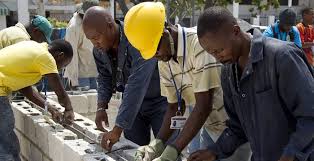
In the last decade, developing countries have been examining the feasibility of introducing wage subsidies as part of an active labour market programme to address issues of employment and skills development. In a general sense, wage subsidy is often used as part of a public policy instrument aimed at increasing job opportunities, or protecting human capital to prevent its depreciation particularly during a time of crisis.
This was the case during the recession of 2008, when a number of developing countries increasingly turned to wage subsidy to boost their economy. A World Bank-sponsored study on the efficacy of wage subsidies in Mexico to boost employment in the wake of the economic crisis concluded that although the use of wage subsidy was not statistically significant, it was, however, an effective tool for tackling unemployment against the backdrop of the crisis. It certainly helped in the quick turn-around of the Mexican economy; and 22 countries around the world used some form of wage subsidy to protect employment in the wake of the economic recession of 2008.
The coronavirus pandemic, by every measure, is by far a worse crisis than 2008, and Small Island Developing States like Jamaica still remain quite vulnerable to external shocks arising from the vicissitudes of the global economy. In today’s global pandemic, the swiftness and extent of the policy response is what will shape the future from the present. One thing is certain, the country can ill-afford the wholescale loss of jobs and the closure of the many small and medium size enterprises on which our recovery hinges.
Our policy response must simultaneously be immediate and long term, and so the long-term implications must be designed around structural changes to our labour market that satisfies three basic social and economic conditions. The first is to immediately protect the health and safety of the workforce, but more importantly to ensure that such protection is long-term and sustainable. So while social distancing, the wearing of masks, the washing of hands and other protocol health and safety measures are important, the need to have proper health and safety legislation and provide adequate social protection through unemployment insurance or some other means, is the logical step the Government should take to provide the structural bulwark against future crisis.
The second long-term social policy initiative which must be adopted is in the area of employment protection. And so, while immediate policy measures must be taken, as in the case of Belize and other countries, to restrict the termination of contracts by employers without prior governmental approval in this period of COVID-19, the longer term approach is to revise and strengthen existing employment protection legislations to guarantee greater job security and statutory protection. This would safeguard against the exploitative and discriminatory practices meted out to contract workers, household workers and people on fixed-term contracts. It also provides a long-term focus on moving our minimum wage to a liveable wage as part of our effort to fulfill the requirements of the Decent Work Agenda.
The third policy initiative is to work to deepen social dialogue and labour-management cooperation in a meaningful way. The establishment of the Post-COVID-19 Task Force is akin to a triple bypass of the established National Partnership Council, the mechanism set up with genuine tripartite plus representation to assist in the process of national development.
The Partnership Council has both the administrative and technical infrastructure to hit the ground running. At the level of the organisation, the revision of the Labour Relations Code should build workplace cooperation beyond the confines of collective bargaining, to include non-unionised workers. A framework for this would encourage key discussions and consultations among workers on critical issues affecting the terms and conditions of their employment.
These policy initiatives would sit well within a broader fiscal policy framework to stimulate the economy and employment through the introduction of a wage subsidy programme. This ensures the sustainability of businesses, which we can ill-afford to close, and secure jobs and income to keep the wheels of the economy turning. The Government’s COVID-19 Allocation of Resources for Employees (CARE) programme, which provides cash transfers to individuals and businesses without any relationship to job security or business sustainability, is not a coherent policy response with an eye on the future. As people lose their jobs, the CARE line will get longer, and the demands for Government assistance will grow louder. The back-end approach cannot be considered as building a sustainable future from the present.
Wage subsidies, whether payments to employers or workers, that reduce the cost of labour or guarantee take-home pay, are increasingly being adopted or considered by developing countries as one component of their labour market policy. We could do well to engage The University of the West Indies in a study which examines the basic economics of wage subsidies; examine issues relating to the design of alternative forms of this approach; and draw on the experiences of the several developed and developing countries on the effectiveness of such policies at this time. This, at a minimum, must form the basis of a decision as to whether we introduce a wage subsidy programme or not. The country’s economic circumstances would dictate the amount of such subsidy, the duration, the modality of transfer, what conditionalities would need to be introduced and what are the determinants for eligibility. In other words, the design parameters of a wage policy would be COVID-19-related.
The framework in which the present must
immediately inform and sustain the future must now be clearly articulated in a
coherent policy approach to the recovery programme. Time is not on our side.



